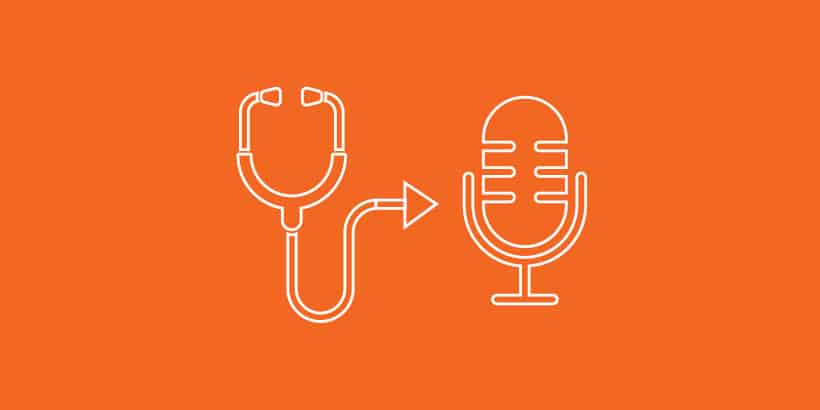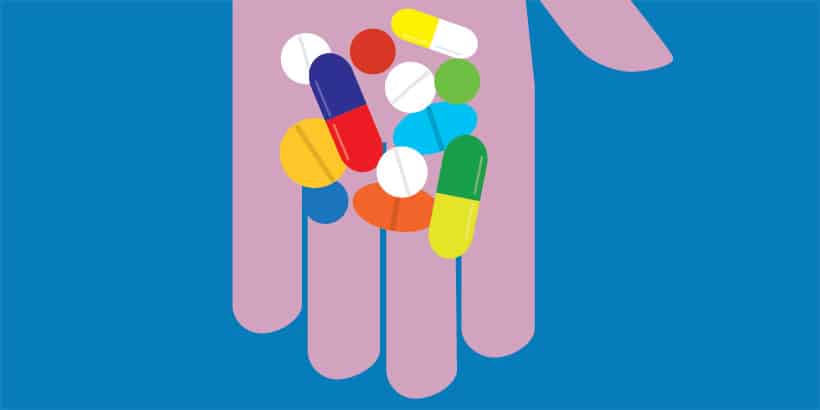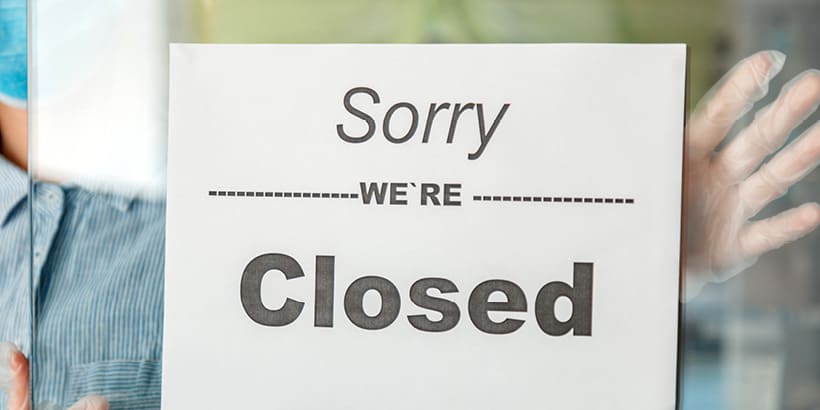
Doctors in politics
March 15, 2023
Antimicrobial resistance
March 15, 2023FEATURE
GP Crisis
As yet another practice closes its doors due to financial instability, Dr Kenneth McCroary laments the impact of the GP crisis on the South West Sydney community.
I have just recently been notified of yet another general practice in South West Sydney’s outer metropolitan region that will have to close down due to the non-viability of their business.
Ingleburn GP, despite caring for the community and managing thousands of patients, cannot afford to remain open and has closed its doors on the needy population of this region due to the decades long neglect and erosion of general practice.
I recently spoke Dr John Holt, one of the general practitioners that was working there.
Dr John Holt graduated from the University of Sydney in 2011 with a Bachelor of Medicine and Bachelor of Surgery Honours. He completed his fellowship in general practice in 2016. He has experience in emergency medicine, respiratory medicine, paediatrics, ear nose and throat surgery, neurosurgery, and orthopaedics. Dr Holt previously graduated with a Bachelor of Applied Science (Physiotherapy) in 2003 and worked as a physiotherapist in a variety of settings including private practice, hospital, and sports team coverage. His areas of interest are physiotherapy, paediatrics, neurosurgery, and orthopaedics.
Despite serving the community’s healthcare needs for many years, Dr Holt said the ongoing issues in general practice had forced the centre’s closure. With operational costs outstripping the indexation of the Medicare Rebate, the practice tried to make ends meet through Workcover and other forms of income. Introducing private billing, however, was not a viable option, given the population of South West Sydney largely consists of people with lower socioeconomic status who would struggle to pay above bulk billing. The practice tried to implement a small $20 gap for patients on top of the Medicare rebate but only a maximum of two or three patients a day would be considered private patients, as the majority of patients were pensioners and concession card holders.
Dr Holt said the inadequate Medicare rebate affects the quality of care. He is distressed and disappointed about the medical centre vending machine form of medicine.
According to Dr Holt, patients need a minimum 15-to-20-minute consultation to be treated properly and this was no longer viable with poor Medicare funding. Practising quality medicine and paying a mortgage seem to be impossible in the current climate.
In addition to financial instability, the practice struggled to attract GPs to work in the area.
I also spoke with Dr Tom Lieng, practice owner of Ingleburn GP. Dr Lieng graduated from the University of New South Wales in 1991. He completed his fellowship in general practice in 1996. He has an interest in chronic illness, musculoskeletal and sports medicine, work injuries and occupational health. He is an experienced doctor in South West Sydney who is committed to providing comprehensive and holistic care to his patients. He speaks both English and Vietnamese.
Dr Lieng stated that he had to make an incredibly painful decision to close his practice. He can not sell the practice as there is no buyer. He recently met with a broker who advised him that the broker’s fees alone would cost him more than the price that would be raised for selling the business. As a result, the practice which has been operating for years, will fold.
Dr Lieng states the operating conditions are the hardest he has ever experienced. He estimates a 30% revenue loss to the business.
There were two and a half doctors, or equivalent, working at Ingleburn, but he was unable to retain GPs as many were attracted to working at higher paying private practices. He does not begrudge the young GPs moving to bigger centres offering more for service, but he can’t compete. The bulk billing practice lost three doctors during 2022. Dr Lieng said it was difficult to convince GPs to stay when they could move to Double Bay and earn $90 a consult.
Even a recent attempt to increase the management fee from 25% to 26% was not enough of an enticement. He could no longer continue absorbing the huge losses.
Dr Lieng said the patients that live locally are being penalised because they are poor. He is committed to fairness and believes in universal health care and that is why he decided to practice in this significant area of need in outer metropolitan South West Sydney. To introduce a fee would be like “trying to bleed the people that are already bleeding,” he said.
Dr Lieng laments that the government doesn’t recognise the needs in Western Sydney. There are efforts to assist rural health but less recognition about the significant health deficits and socioeconomic determinants of health in other areas – particularly outer metropolitan Sydney.
An alternative was to rush through 8-10 patients an hour, which Dr Liengs calls “burning Medicare,” but this is not the way that he and his fellow GPs want to practice.
Dr Lieng’s wife is a GP examiner and said that the decrease in the number of GP applicants has meant that everyone gets accepted. Dr Lieng understands why there are fewer applicants – why choose a career where there is more work, the patients are becoming more complex and more complicated ,and there is no recognition by government.
The erosion of general practice continues and this will inevitably result in poor outcomes for patients in our community. Without a highly functioning and adequately funded GP lead primary care system, the entire health system falls over. Evidence from the UK, the US, Europe, and locally has found general practice is the most cost effective and most efficient form of healthcare in the community. Despite this, our state and federal governments continue to ignore the crisis in general practice.
We need urgent increases in Medicare rebates for quality general practice care. We need the system to be reviewed to provide blended payments for GP lead primary care and our teams to develop and enact systems and protocols to assist our local communities. We need it urgently otherwise our system falls over and Ingleburn GP will not be the last medical practice to close its doors forever.
ABOUT THE AUTHOR
Dr Kenneth McCroary is a general practitioner and owner of Macarthur General Practice. He is also the Chair of the AMA (NSW) Council of General Practice.
Special update: Dr Kenneth McCroary Q&A with Dr Tom Lieng
Dr Kenneth McCroary: Following a recent discussion regarding the disappointing closure of Ingleburn GP and the ongoing crisis in general practice funding, viability, and workforce, I was fortunate enough to gain further insight from Tom regarding the heartbreak and frustration felt so widely throughout our profession.
So, Tom where are we at, how did we get here and what do you believe the future holds?
Dr Tom Lieng: The truth is that the government has not indexed our Medicare rebate since Medicare was born. It was initially pegged with the AMA rate of a standard consultation and the AMA rate has been adjusted with inflation over the years but not Medicare. Current standard consultation is $89 for the AMA rate and $39.75 for Medicare. Medicare was designed in the ’70s for consultations with a single agenda. Since then, healthcare has changed significantly and a GP consultation is often complex with multiple medical problems and treatment interaction considerations. When I first became a doctor, a standard consultation would take less than 10 minutes but now I struggle with 15 minutes. Junior doctors could not handle a consultation of 15 minutes and often consultations are 20-30 minutes.
As a result of increasing rising cost, GPs are abandoning bulk billing. But that’s not solving our local problem. We recently decided to charge $20 gap fee. We excluded aged pensioners, healthcare card holders, and children. We are surprised that 95% of our patients falls in the excluded group. It reflects the low socioeconomic of our local community.
Thirty years ago, the rate of doctors choosing general practice after finishing Medicine is 60/100. Now it is only 19/100. The government attempts to fix this gap by recruiting overseas trained doctors. You may be aware that this is now a crisis due to Covid and the three years not recruiting due to border restriction caused rural doctor crisis.
In South West Sydney, there is a relative shortage of GP due to the low socioeconomics. GP are choosing an area of higher private billing to practice. This leads to closure of general practice in the area. Currently a practice is closed down in South West Sydney every 40 days. I am a practice owner of two practices at Lurnea and Liverpool. I am in a fortunate situation that I own the buildings so I don’t have to pay rent. It helps reduce our operational cost and allow us to survive without a practice loss. Our Ingleburn branch is not the same as we rented the premise. It costs about $200,000 pa to run a medical centre with skeleton support staff and Medicare rebate means I need at least three full-time GPs to pay for that cost.
Last year, I approached my doctors and asked for extra 1% management fee to cover for the rising cost of general practice. It resulted in departure of three established GPs within my group. One doctor moved to Eastern Suburbs to a practice that charges $90/consultation. One doctor moved to Lower North Shore to a practice than charges $90/consultation. One doctor moved to another practice in South West Sydney that books 10 minutes appointments instead of 15 minutes. So the solution that us GPs have is to either charge patients a private fee or practice bad medicine and spend less time with our patients. It’s simple economics. The issue is that our local community is poor. They can’t afford $90. They struggle to pay $60 and cannot pay $90. We don’t want to make them pay $90 but we are struggling to survive on $40/$60 fee. Our doctors are not incompetent and can work anywhere in Australia. But practising in South West Sydney means that we are financially penalised because our patients are poorer. Universal health care does not exist under the current system and the design of the system 50 years ago no longer works.
We need a change in the system. We need increased Medicare rebates and we need the Payroll Tax to be aborted.
It is not easy to train a GP. If the governments act today and make the remuneration reasonable, it will take 10 years before the effects take place. So the situation will worsen in the next 10 years even if we see action now.
We as a group have made plans to broaden our fee structure to charge more patients and more for each visit. It means an extra cost to our already very poor patients who are struggling to survive with living expenses. But it’s either that or face further closures. We already lost 1 of our 3 centres. The AMA and the RACGP have together been actively campaigning to prevent this but we have not been well supported and the Government is not listening.
I am hoping see Medicare reform in the parliament as an agenda to discuss changes. It’s mind boggling to me.
Last year was a bad year and I was seriously considering packing my bags. But it means shutting down Lurnea which is the longest surviving general practice in South West Sydney. It would be a symbolic death of general practice. We have got to continue fighting. Not for us but for our colleagues’ future. I am old enough to retire (early) but they are not. They have mortgage and bills to pay.
Kenneth: What a sad and tragic turn of events for yourself, GPs and the most vulnerable members of our community.
Tom: Thanks Ken. I didn’t anticipate that our story would echo the general practice crisis in this way. Thank you though for writing it up and sharing our hardship. It was a very painful decision to close down Ingleburn GP after six years of work. We didn’t think that we would survive covid but could not survive politics.
Originally published in GP Link Lunches – Interview Series with Dr Kenneth McCroary. If you’re not a member of GP Link already or you would like to learn more log onto the website at https://sswgp.link/.

